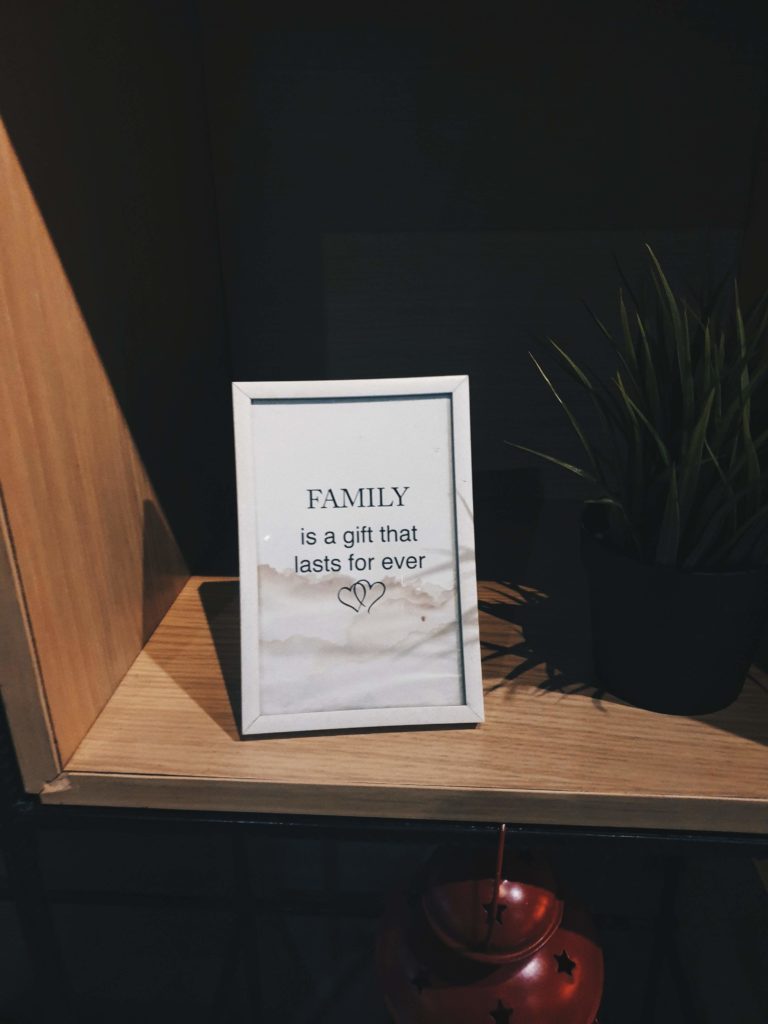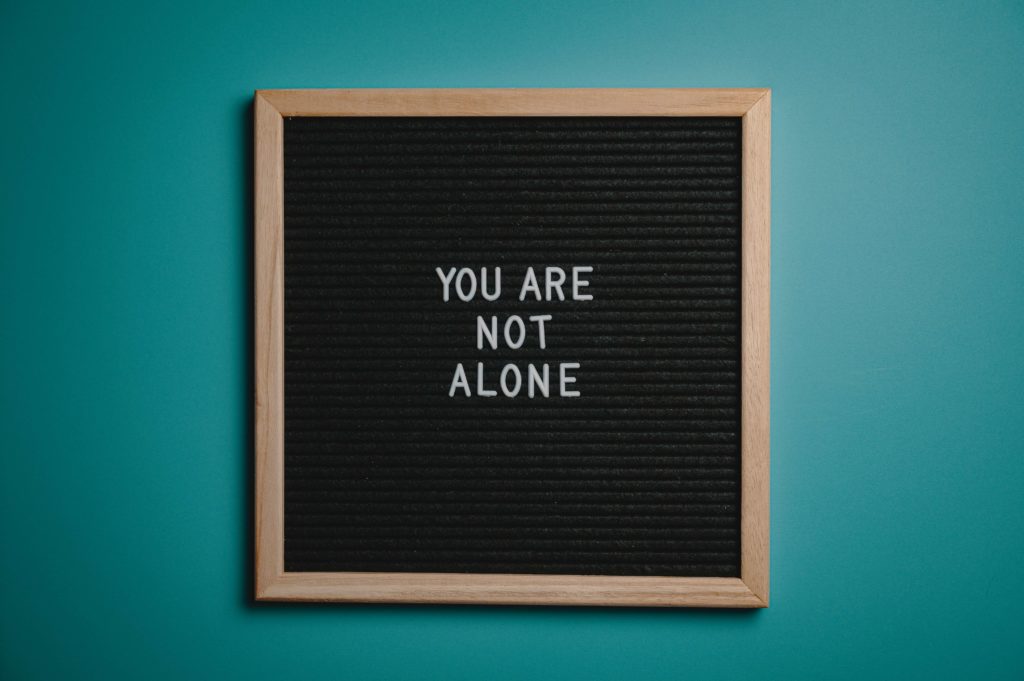Introduction
When we are in an abusive relationship, it is easy to feel powerless and lack boundaries. We’re told what to do, how we should feel, and even where we should go. Because the abuser knows that if you don’t comply, your self-esteem will eventually be destroyed by constant criticism and attacks on your character, they use guilt and fear as their weapons of choice.
There is little chance that things will ever get better for either of you as long as the abuser maintains power over you through guilt trips and manipulation (or any other form of verbal or physical abuse).

Take stock and have a plan.
- Make a plan and take stock.
- Make a list of what you want to change, and keep in mind that not everyone will be able to do so. If you can’t change your family member’s behavior toward you, try to make yourself less vulnerable to emotional abuse by being more assertive or making decisions without their approval.
- Write down what is most important to you as an individual (e.g., relationships with friends/family members) versus what is most important to you as a member of the family unit (e.g., living under one roof). The latter should be prioritized!
See through the flattery and favors.
Flattery is a form of manipulation, not a genuine compliment. It’s also possible that the person who is flattering you is attempting to gain something from you (such as favors or money).
If someone makes an effort around your birthday, ask them if they’re just doing it for something in return—or, better yet, make sure their motives are clear!

Remind yourself of your own value.
Remind yourself of your worth.
You may have been told as a child that you are not responsible for your family members’ feelings and actions. You are only responsible for yourself, and it is critical that you remember this now that you are an adult. You have no control over what other people do or say; therefore, whether or not they are happy and satisfied with their lives is not your concern. If someone in your life has told you otherwise, it’s time for them to leave the relationship because their needs are always prioritized over yours!
It’s critical for everyone (especially children) who were emotionally abused by their family members as children, as well as spouses/partners/etc., but especially mothers who have been hurt by abusive fathers throughout their childhoods; we need inner strength, so we don’t repeat these patterns when our children become adults themselves someday soon.”

Talk to a therapist or counselor.
It’s extremely crucial that you talk to a therapist about your situation if you’re considering it. Hearing someone else’s story and getting their take on what’s going on can be extremely beneficial when trying to make sense of things.
If at all possible, consult with someone who has previously worked with emotionally abusive family members. A therapist can assist you in guiding you through the process of establishing boundaries with those individuals in order to bring them under control so that they do not continue to cause problems for themselves or others.
Say no to what you don’t want.
When you don’t want to do something or when it makes you feel bad about yourself, it’s important to say no. Saying no can be difficult at times because we are afraid that others will judge us for our decision, but this is not a valid reason to stay in an unhealthy relationship. As an example:
- Say no when you feel your self-esteem is being undermined.
When someone constantly criticizes your self-esteem and makes decisions based on how they believe you should behave based on their opinions of who you are as an individual rather than what kind of person YOU are as an individual (i.e., lack of boundaries), they are most likely doing so because they themselves have low self-esteem. If this is true for both parties involved—and since we have all been taught since childhood how important our sense of worthiness is—then there may be some truth to why these people act out in abusive ways!
Challenge unreasonable demands.
There are numerous ways to oppose unreasonable demands.
- You should not be afraid to say no. If an abuser is demanding too much, don’t feel obligated to give in and do what they want simply because they are your family members or relatives. Instead, explain why this request does not make sense—it is not fair or reasonable, and/or it would not benefit anyone involved (including yourself). Explain why it is essential for everyone involved to maintain an even distribution of time and energy spent on various tasks or activities. Then, rather than giving in so quickly, consider whether there is another way around the problem.
- Don’t be afraid to ask why demands are being made at all; if possible, ask these questions directly rather than making assumptions based on past experiences that may have been distorted as a result of emotional abuse from an abuser/abuser responsible adult as a child when we didn’t have any access but still managed somehow through sheer determination alone after being knocked down several times before finally reaching adulthood where we now find ourselves standing tall against those who would try to ruin everything we’ve worked so hard towards achieving thus far even though success doesn’t always come easily especially when dealing with others who haven’t been lucky enough themselves—they lack experience, which gives them no idea how difficult life has been thus far despite having a lot go wrong since birth.”

Keep your space and privacy as sacred as you can.
- Establish limits with your family members. It may be difficult, but try to limit their time spent with you and in your life.
- Set your own and everyone else’s space boundaries. If someone approaches you to talk, it is critical that they respect your privacy by not entering the room unless invited or politely asked to do so (by saying “please come in”). This will help them feel less like intruders in your personal space!
- Finally, don’t let people into your life who aren’t supposed to be there—this may seem obvious, but we often forget this important rule when we’re emotional or stressed out about something at home or at work!

You don’t have to do anything for anyone unless you believe it’s right, and even then, be aware of how guilt-tripping is used to manipulate you.
You don’t have to do anything for anyone unless you believe it’s right, and even then, be aware of how guilt-tripping is used to manipulate you.
You have no control over what other people think or do, and they will never understand why you don’t want to deal with their drama.
Except for interactions that take place within the confines of your own home, you are not responsible for anyone else’s feelings (or wherever else).
Do you expect them to change? Then stop bringing up issues that are unrelated to your relationship! Stop worrying about how things affect them emotionally and instead concentrate on how they affect YOU emotionally.

Conclusion
I hope this has helped you understand why setting boundaries with emotionally abusive family members is so important. As we’ve seen, there are numerous ways for these people to keep us from leaving their sphere of influence, and their deception can take many forms. However, we believe that by taking a firm stance when necessary and surrounding yourself with friends or other supportive resources during these times, you will be able to weather any storm and emerge stronger than before.

I want to extend a heartfelt thank you for taking the time to read this blog post. I hope it was informative, insightful, and most importantly, useful to you. Mental health is an important topic that affects us all, and I’m grateful for the opportunity to share my thoughts with you.
If you have any thoughts or comments, I encourage you to leave them in the comment box below. Your feedback is essential to me and helps me create content that is tailored to your needs.
If you found this post helpful, please subscribe to my newsletter for more resources and updates on mental health. You can also reach out to me via email if you have any questions or just want to chat. Remember, taking care of your mental health is important, and you are not alone.
Leave a Reply